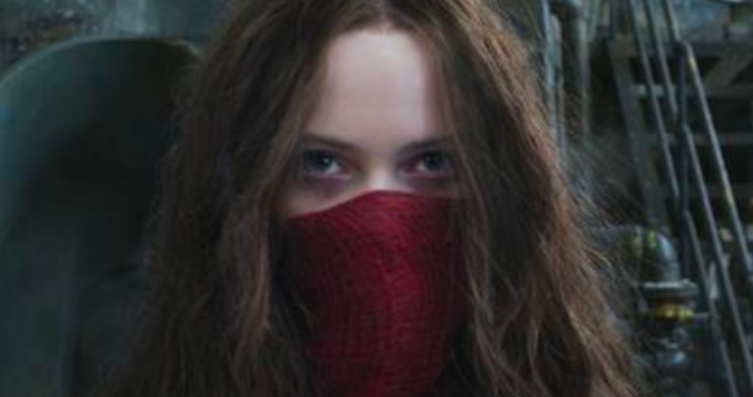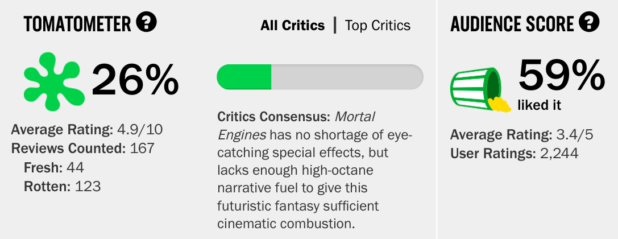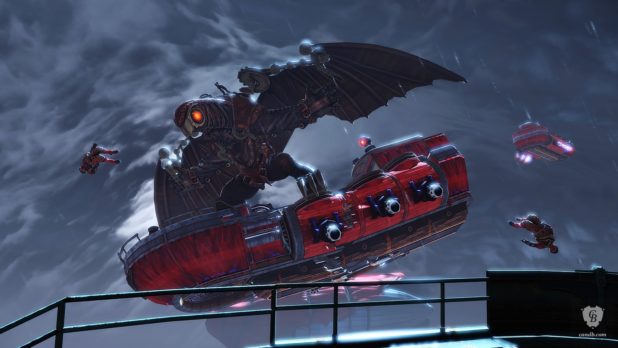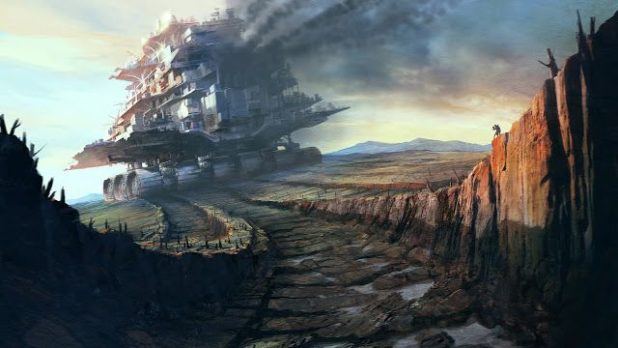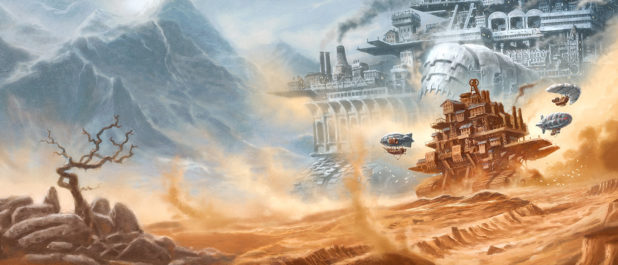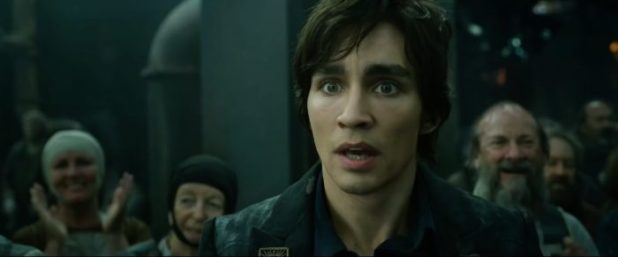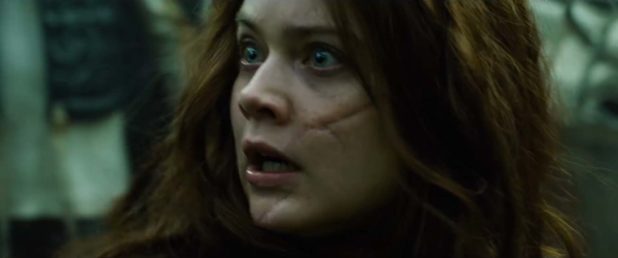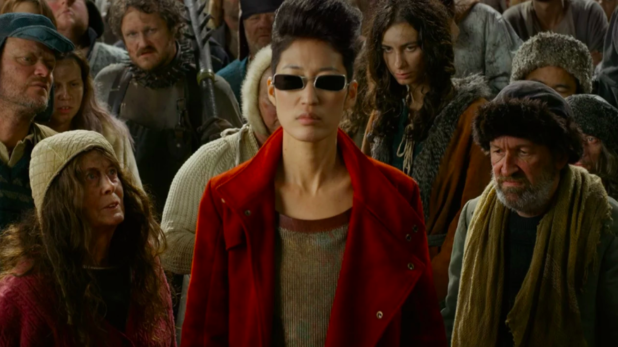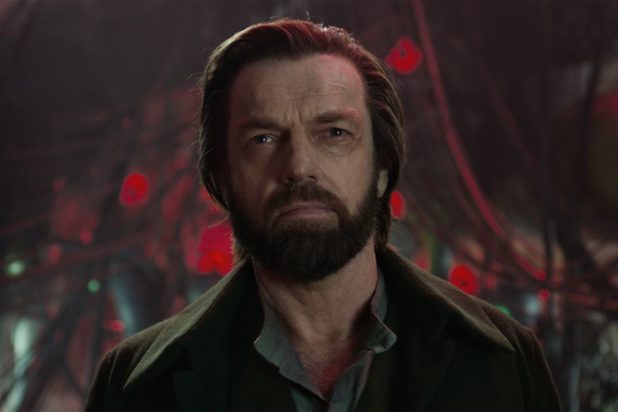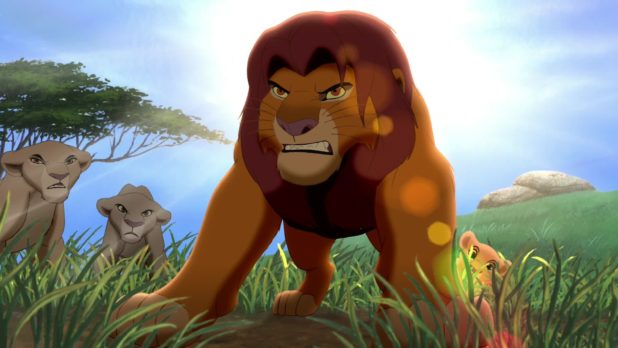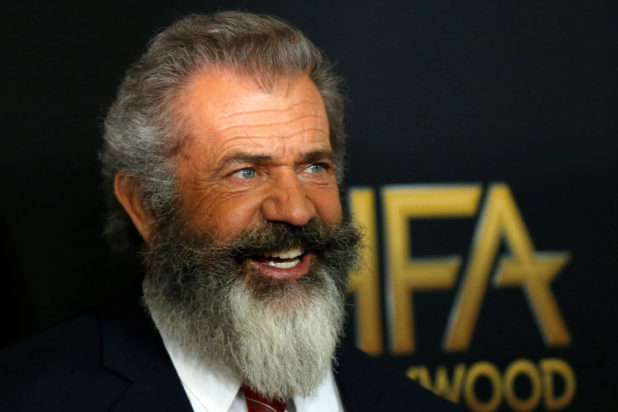Andrew Anglin
Daily Stormer
February 1, 2019
Last night, I had a couple glasses of Gordon’s gin because I’m too broke to afford Beefeater.
Nah, I lie. I was drinking Beefeater.
I usually drink Gordon’s, but I splurged on the good stuff, due to the pressure of planning for the coming post-apocalyptic realm.
I turned on the latest post-apocalyptic film, Mortal Engines. I hadn’t read the reviews. I didn’t even know how badly it had bombed. It was just a top-seeded torrent when I was browsing, and I was aware that Lord of the Rings director Peter Jackson had produced it, and was vaguely familiar with the young adult novel on which it was based.
I fell asleep halfway through it and don’t plan on watching the second half, but I’ve seen more than enough to write a review.
The premise is that 1000 years after a nuclear war – in fact a war involving some kind of post-nuclear quantum bombs that dislodge the tectonic plates and cause continental drift – the earth is populated by massive moving cities which navigate a wasteland on tank treads.
Even without knowledge of how poorly the film did at the box office or the reviews it got, I was not expecting much. However, what I was expecting top-tier CGI steampunk imagery. Within the first 5 minutes, it was clear I wouldn’t be getting that. The opening scene, which involved panning the mobile City of London as it chased down and swallowed a small mobile village to cannibalize it for resources, was shockingly underwhelming. You would think that at this point, Hollywood could at least get CGI right, and it isn’t exactly difficult to make the steampunk aesthetic intriguing. Dark City pulled off the aesthetic beautifully 20 years ago on a budget 20% of the size of that of Mortal Engines. And the Bioshock games have standardized the visuals to the point where no one needs to be confused about how this should look.
The cinematography and art direction of Mortal Engines was poorly executed, the CGI was broken, and the physical sets looked like something from the 80s. But what was most shocking is that it was clear they did not even have proper concept art. If they were consciously attempting to not rip-off Bioshock – which doesn’t really make sense, given that it is virtually impossible to get sued for ripping off a “general aesthetic,” meaning they were trying to fix something that was not broken – they could have just typed “steampunk” into Deviantart and gone from there.
I also recently watched Solo, which while obviously being a horrible film, stood clearly as the absolute best of the Disney Star Wars films based exclusively on the execution of the retro scifi aesthetic. There just isn’t any excuse for not making a film visually pleasing these days.
What is even more incredible is that if you type “Mortal Engines concept art” into Google Images, you find that fans of the books had already created concept art before Peter Jackson began his project, and that it is significantly better than the official concept art.
Fan made concept art
Official concept art
The actors were likewise underwhelming. None of them had any screen presence at all.
None of these failures can be blamed on the horrible writing, because there are plenty of instances where horrible writing doesn’t really matter because the visuals and presence of the actors overcomes it. The best example is any single Christopher Nolan movie. He has not ever made a movie, save Memento, where you would read the script and think anything other than “this is complete crap,” and yet he has not made a movie that was not extremely enjoyable to watch due to the cinematography, art direction, special effects, music and the choice of actors.
I have watched Dark Knight Rises more times than I can count, and I couldn’t summarize the plot, let alone describe themes. I couldn’t even describe the motivations of any of the characters. There is a vague notion of Nietzschean affirmation and a spiritual revolt against the dehumanization intrinsic in modernity if you watch the movie assuming Bane is the protagonist, but even that doesn’t really hold up, as the writers insisted on continually reminding you that he is the bad guy in cartoonish ways. I can quote lines from the film, all of which are cringy, cliched crap – to the point where it is difficult to believe they were not intended to be a satire of poor dialogue – and yet the imagery that they are connected to in our collective cultural mind is so great that the lines are powerful in an only partially ironic way.
Just imagine reading the film’s quintessential plane scene. It is virtually impossible to imagine worse writing than that. And yet it may be my favorite movie scene of all time.
https://www.youtube.com/watch?v=djEzPh6LWZE
I don’t know how much of that is subconsciously internalized irony. I don’t personally have the capacity to distinguish between ironic and genuine sentiment in myself, and I’m pretty good at self reflection in general. I’m sure this is a problem (or is it a feature?) for all millennials who are anything other than true believers in modernity; ironically, the believers in the most artificial belief system which has ever existed, and presumably ever could possibly exist, are the most genuine people of our era.
Given the state of things, visuals and general cinematic experience are really the only thing that I ever expect can possibly be good in a modern Hollywood blockbuster film. In fact, the only two actually good movies to come out of Hollywood in recent memory are Blade Runner 2049 and Mandy, neither of which really attempted to have a plot.
So in watching Mortal Engines, I was trying my best to not pay attention to the dialogue, plot, themes, character development, or any other potential literary element. However, because I’ve watched so many E;R film reviews, I can’t hardly watch a movie without hearing his voice in my head breaking it down. And so I must say, this was worse than any of the Disney Star Wars films.
Like Star Wars, you have a situation where you would assume anyone could take the premise and write a good story from it. A post-apocalyptic world with gigantic steampunk cities on treads is just a fun concept. And it’s a shame that kids can’t go see a movie about a fun concept like this and have it be actually entertaining.
I will say that unlike Christopher Nolan films, it has a coherent plot, characters with coherent motivations, and a coherent theme regarding man’s violent nature inevitably leading him towards self-destruction (I don’t agree with the sentiment of that theme, but it is a real theme). But other than that, it is just a total disaster. Phenomenally bad.
I’m not going to get bogged down in trying to analyze what was a continual series of “why did that happen though, it doesn’t make any sense?” scenes as E;R would, and instead just focus on what I can imagine children walking away from this film with. As it is a film for children.
I’ll also note that I haven’t read the book and I don’t know how much of this is the fault of the novelist and how much is the fault of the screenwriters. The book certainly received better reviews than the film.
The male protagonist is a beta male loser who gave up on his dreams after his parents died and he got sad, while the female protagonist is a strong female with a deformed face who became stronger when her mother was brutally murdered in front of her. As stated, I fell asleep before the ending, but the general idea was clear: the male protagonist was teaching the female protagonist that she should be weaker and less capable in order to be a better person with a connection to humanity. I have no idea if this was some sloppy attempt to invert perceived patriarchal tropes, or if it was just the result of complete incompetence on the part of the writers, but it was really something.
The female protagonist is on a revenge mission against the villain who killed her mother and scarred her face, but it is as impossible to sympathize with her as it is to sympathize with the whiny and pathetic beta male protagonist, who is more concerned about making friends than he is with fulfilling the dreams he abandoned when his parents died.
In the second act, we are introduced to an Asian lesbian assassin, who appears to be a cold-blooded killer but actually has a heart of gold and is simply a product of the world of violence created by masculine men’s quest for power and dominance.
The fact that both of the strong female characters actions are driven entirely by a reaction to masculinity probably has to have been an accident. Both are victims of men forced into revenge missions against men, meaning that they are not directing their own lives or development as people. One of the screenwriters is female, and this appears to be the literary equivalent of a Freudian slip. Because it is certainly too close to the truth to be something that feminists would wish to promote. The modern woman really is driven by animosity towards men, rather than any kind of internal drive to achieve something great, and what we are told are “empowered” women are actually broken children lashing out.
Rey in the Disney Star Wars films is a much better projection of the feminist fantasy, the female conception of themselves as becoming men in order to accomplish some great thing on their own. She acts upon men in order to enforce her own masculine-type will on others, rather than simply reacting to male social dominance.
The villain, played by Agent Smith from the Matrix, is a caricature of patriarchal violence. He is portrayed as evil for wanting to dominate his enemies in order to protect his own people. Everything evil he does in the film is actually unnecessary, and simply shoved in to remind the viewer that he is evil.
He secretly plots to use a weapon from the war that destroyed the world to defeat his enemies and take the resources for his own people. In actual reality, there would be no reason for him to be doing that in secret, and he could simply tell his own people that it is necessary to use this weapon for our own survival. In such a case, he would have been the hero, fighting to protect the people he cares about. And this actually would have made sense within the film’s universe, because the people he wants to bomb are purposefully locking his mobile city out of an area which contains all of the world’s resources and forcing them to starve.
The female protagonists of course want to make peace with the enemy, which is why they are fighting their own leader. But they are using brutal violence to fight their own people, which makes their quest for peace appear to be a hypocritical excuse for their own personal revenge missions. And again, the revenge missions themselves are not obfuscated, but are prominent themes, and are presented as just and good.
The villain killed the main female protagonist’s mother in order to steal a part he needed for the weapon. But there is no clear reason why he couldn’t have simply told her “look, if I don’t use this weapon against our enemies, we’re all going to starve to death,” at which point she presumably would have just given him the object, which would have eliminated the need to kill her, which would have eliminated the need for a revenge mission against him.
All in all, these are horrible values to instill in children. And everything I’ve written here is stuff that very few modern parents would be able to pick up on. So this is a subversive, secret indoctrination.
It’s interesting that the movies of my own childhood had much less of this sort of thing. The Disney cartoons of the 1990s were all retellings of classic hero tales. The Lion King, which was the best of the lot, was just Hamlet for kids. The son of a murdered king undergoing a personal struggle to make himself into the kind of man (cat) capable of killing the usurper of the throne is a fine and wholesome message.
I don’t think that the people running Hollywood were any more wholesome at the time, so maybe parents were more discerning. Or maybe there was more concern for quality, and it was incidental that quality came along with classic, wholesome themes.
It’s a shame that films are not better, both artistically and morally. Film is truly an incredible medium, and there is so much that could be done with it if better people were not forced out of the industry by the ethnic mafia that runs it.
It’s also a shame that Peter Jackson would attach his name to such a subversive and generally horrible film. Lord of the Rings (and I guess maybe the Hobbit as well) were the last wholesome blockbuster films that I’m aware of. I suppose he is under a lot of pressure to engage the larger social agenda.
